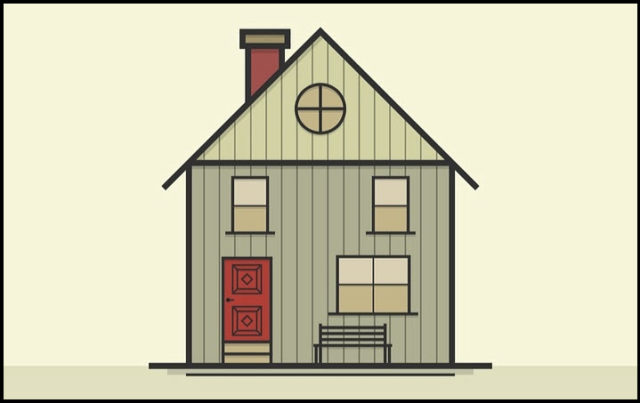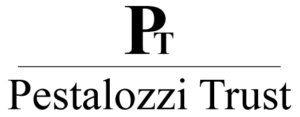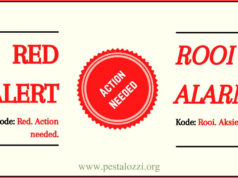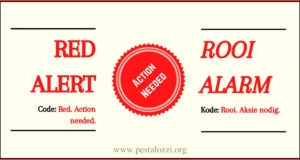
[Here is a link to the Word template and the online template for you to use in your comment.]
Shakespeare asks “What’s in a name? That which we call a rose by any other name would smell just as sweet.”[1] One doesn’t like to disagree with him but when it comes to the BELA Bill, we can say “Something is rotten in the state of Denmark.”[2]
The core problem with the BELA Bill is the name. BELA Bill’s name says that it is a “Basic Education Laws Amendment Bill”, but it is actually not that. It is a “Schools Amendment Bill”, because what it is amending is the South African Schools Act. Everything in it, including the section on home education, is dealt with from a school perspective. If you agree with roughly the 54% of home schoolers who feel that the government should have some role in regulating home education, as long as it is the right role, then this is a major problem.
Home schoolers know that home education is different from school, but the fundamental problem is that the DBE lacks expertise in and understanding of home education. The core concept of home education is fitting the education around the child, not fitting the child into a mass education system. This is very difficult for the DBE to fit into their thinking about the education system. Home education therefore uses multiple approaches and an infinite combination of those approaches, and officials are in general unaware of this. The DBE takes a completely bureaucratic approach to home education and tries to fit it into its school-based thinking.
Unfortunately, this has meant that the process of preparing the Bill was deeply flawed and that the Bill is by no means ready for parliament.
The evidence for this is as follows:
No meaningful consultation
The DBE had not consulted in a meaningful way. The DBE handpicked those who would join the task team to prepare the Bill. These consisted primarily of DBE and PED officials who have many other duties and do not understand the basics of home education. Only one home educator served on the task team and one curriculum supplier who both were very supportive of a CAPS-based approach. The many other curricula and approaches were not represented and so naturally we have a CAPS/School-aligned Bill. The fact that DBE implemented this flawed concept doomed the Bill from the outset.
By the time the Bill was published, the DBE had fixed its mind and would not make any fundamental change of approach. A few small and important concessions were made by the DBE (such as registration only once and notification per phase thereafter and the strict compliance to CAPS was made looser) but the overall structure was not changed.
No Research
Where officials don’t understand much about as an obscure a subject as home education, they then should have independent research done. But as the Minister admitted in the PCBE, the DBE has no research on home education.
Really, no meaningful and recent research has been done, even after they did commission research in 2008. It is concerning that the Minister didn’t know this, but more concerning that she is willing to steer the Bill into the dark with no research to light the way. This need for research was pointed out in internal DBE documents as early as 2015. The DBE doesn’t even know how many home educators there are and has started throwing out wild numbers like 500 000. (That is more than the total independent school sector[3].)
No credible SEIA
Without research the DBE cannot produce a credible Socio-Economic Impact Assessment. The SEIA developed by the DBE is fundamentally flawed. Without a SEIA no one knows what the impact of the Bill will be it. It should not progress without a proper evaluation of the impact and possible unintended consequences that it will have.
No account of changes since COVID
Another general problem is that substantial changes in the education sector have taken place in the 10 years this Bill has been under preparation (work on the home education sections began in 2012/13) and these changes accelerated under COVID. The move to online schooling has accelerated and drawn in a new group of providers and parents. The DBE believes this needs a separate policy for Virtual Schooling.
There has also been a significant growth in micro/cottage schools. This is a significant sector that also faces legal problems because the policies and procedures for registering large schools are not suited to these institutions, and separate regulation is required. The Bill says nothing directly about these.
There are also a number of technical legal reasons why including home education under the BELA Bill is not appropriate. These reasons are too long to cover here, but it has been distributed to members previously in a Nugget.
What you can say and request:
- Most importantly: ask that the Home Education sections of the BELA Bill be removed from the current SASA and new appropriate legislation for home education be developed.
- Ask the PCBE to request a thorough Socio-Economic Impact Assessment that is developed through engagement with home schoolers so that members of parliament can know what the impacts of the Bill will be.
- Ask the Portfolio Committee on Basic Education (PCBE) to meet with home education organisations, researchers and parents to get the needed background to home education.
- Explain the curriculum and approach you use, why you chose it and how it benefits your family.
- If you have had a negative experience with CAPS and schools, highlight that.
- Explain why you would not want your child to follow CAPS or be assessed against CAPS.
[Here is a link to the Word template and the online template for you to use in your comment.]
[1] Romeo and Juliet, Act 2, Scene 2
[2] Hamlet, Act I, Scene 4
[3] https://www.news24.com/truelove/lifestyle/parenting/truelove-edu-the-rise-of-private-schools-in-sa-20210824






Stop the Bill